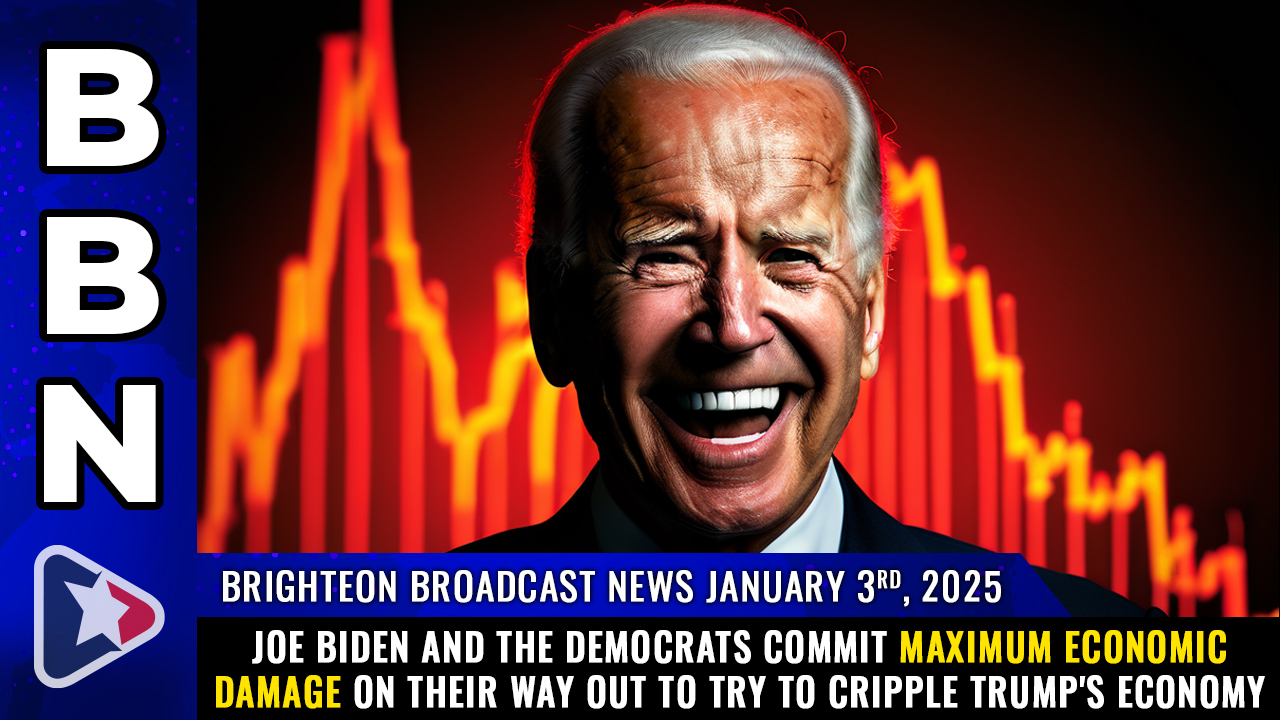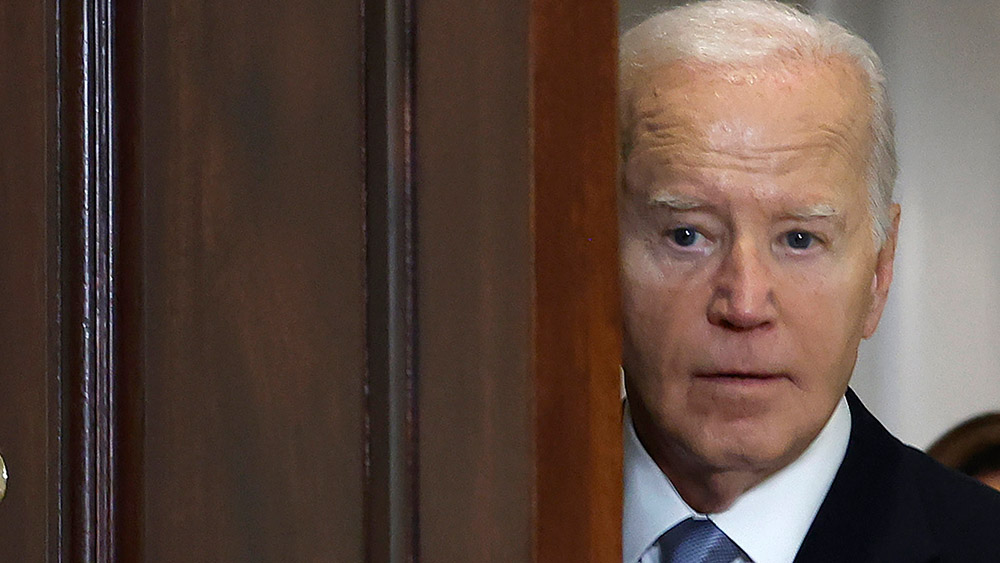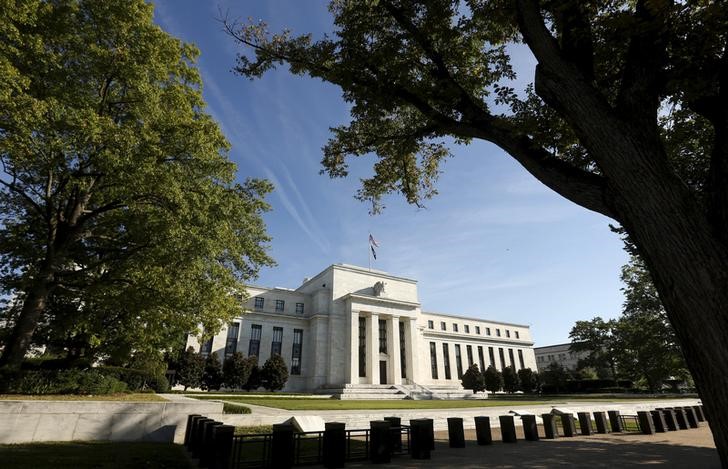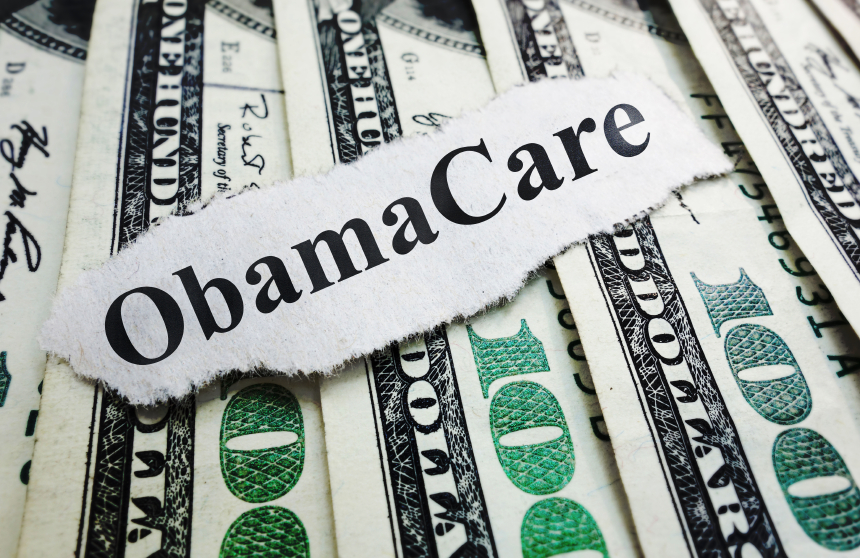Aaron Day: Roger Ver’s arrest and prosecution signals war on DECENTRALIZED FINANCE
01/04/2025 / By Ramon Tomey

- The U.S. government has intensified its efforts to prosecute prominent figures in the cryptocurrency sphere, including Bitcoin pioneer Roger Ver, in a move that has alarmed the DeFi community.
- The crackdown is linked to the federal government’s efforts to promote central bank digital currencies (CBDCs) and regulate decentralized cryptocurrencies, as mandated by Executive Order 14067 signed by President Biden.
- Roger Ver’s arrest serves as a warning to other crypto advocates, reflecting the government’s broader strategy to undermine alternative financial systems and maintain control over the monetary system.
- President-elect Donald Trump, who opposes CBDCs and advocates for economic liberty, can potentially shape the future of decentralized finance through his policies, including a possible pardon for Roger Ver.
- The ongoing tension between centralized financial systems and the principles of economic freedom and decentralized finance highlights the need for vigilance in protecting financial innovation and privacy. The outcome will shape the future of digital currencies in the U.S. and beyond.
In an alarming development that has sent shockwaves through the decentralized finance (DeFi) community, the U.S. federal government has launched a crackdown on prominent figures in the cryptocurrency space, including Bitcoin pioneer Roger Ver.
The reasons behind this targeted persecution are multifaceted but clearly connected to the federal government’s push toward central bank digital currencies (CBDCs) and stricter regulation of decentralized cryptocurrencies. This aligns with the outgoing Biden administration’s Executive Order (EO) 14067, which mandates the exploration of CBDCs and the use of a “whole-of-government” approach to regulate decentralized cryptocurrencies.
Roger Ver, often referred to as “Bitcoin Jesus” for his early advocacy and adoption of the cryptocurrency, has long been a vocal critic of CBDCs and a proponent of alternative, decentralized financial systems. His arrest and prosecution serve as a stark reminder of the ongoing conflict between centralized financial systems and the ideals of economic freedom and decentralization.
During an appearance on InfoWars‘ “The Alex Jones Show” on Dec. 18, Aaron Day, a privacy coin advocate, observed that the federal government’s campaigns against pro-decentralization figures like Ian Freeman and Jeremy Kauffman are part of a coordinated strategy to undermine alternative financial systems. He noted to guest host Mike Adams that these actions signal a broader effort to stifle opposition to CBDCs and maintain control over the monetary system.
EO 14067, signed by outgoing President Joe Biden in March 2022, sets the stage for this crackdown. The order calls for the exploration of CBDCs and the establishment of a framework for digital asset regulation. While the order itself does not mandate the development of a U.S. CBDC, it has created a regulatory environment that justifies aggressive actions against crypto advocates. The Biden administration’s push for a CBDC is not without precedent; other major economies like China, India, and Australia are also exploring or have already launched their own CBDC initiatives.
The timing and intensity of the Ver case raise significant concerns. Day has pointed out that the government has accelerated its efforts to target key figures in the crypto community, possibly due to the perceived threat that individuals like Ver pose to CBDC ambitions. This targeted prosecution serves not only as a warning sign to other crypto advocates but also as a means to demonstrate the federal government’s resolve in controlling the monetary system. (Related: Experts warn: Centralized digital currencies could be used to control how people behave.)
Trump’s potential pardon of Roger Ver could reshape decentralized finance
President-elect Donald Trump, a vocal critic of CBDCs and a strong advocate for economic liberty, could play a significant role in shaping the future of decentralized finance. Trump’s opposition to CBDCs is well-documented, and his statements at the 2024 Bitcoin Conference, where he declared there would never be a CBDC during his presidency, have resonated strongly with the crypto community. Adams noted that if Trump takes office again, a pardon for Ver could be a powerful statement in support of decentralized finance and a rejection of centralized monetary control.
Trump’s pardon of Ver would be a bold move to bolster the crypto community and demonstrate his commitment to economic freedom. It would also be a practical step to fulfill his campaign promise to prevent the implementation of CBDCs. Roger Ver, with his extensive knowledge of the crypto ecosystem and his fierce opposition to centralized financial systems, is uniquely positioned to help the government navigate the complexities of regulating and promoting decentralized finance.
In conclusion, the persecution of Ver and other crypto advocates by the federal government highlights a critical juncture in the fight for economic freedom and decentralized finance. The Biden administration’s push for CBDCs is at odds with the principles of individual liberty and financial autonomy that many crypto proponents champion. As the debate over the future of money intensifies, it is crucial that both policymakers and citizens remain vigilant in defending the rights to financial innovation and privacy.
The fate of Ver will undoubtedly continue to serve as a litmus test for the future of decentralized finance and a critical indicator of the direction the U.S. government intends to take in the realm of digital currencies. The time to protect economic freedom and decentralization is now, and the actions of key figures like Trump will be crucial in shaping the course of monetary history.
Watch the second hour of the Health Ranger Mike Adams’ Dec. 18 guest hosting on “The Alex Jones Show,” where he interviews Roger Ver, Tracy Thurman and Aaron Day.
This video is from the Ron Gibson Channel on Brighteon.com.
More related stories:
Trump vows to prevent the Federal Reserve from creating an American CBDC.
Trump tells supporters he will “never allow” a CBDC if re-elected.
Sources include:
Submit a correction >>
Tagged Under:
Aaron Day, arrest, big government, CBDC, central banks, conspiracy, crypto, cryptocurrency, decentralization, decentralized finance, digital currencies, digital money, Donald Trump, fascism, finance, finance riot, freedom, Health Ranger, liberty, Mike Adams, prosecution, Roger Ver
This article may contain statements that reflect the opinion of the author
RECENT NEWS & ARTICLES
COPYRIGHT © 2022 FinanceRiot.com
All content posted on this site is protected under Free Speech. FinanceRiot.com is not responsible for content written by contributing authors. The information on this site is provided for educational and entertainment purposes only. It is not intended as a substitute for professional advice of any kind. FinanceRiot.com assumes no responsibility for the use or misuse of this material. All trademarks, registered trademarks and service marks mentioned on this site are the property of their respective owners.




















